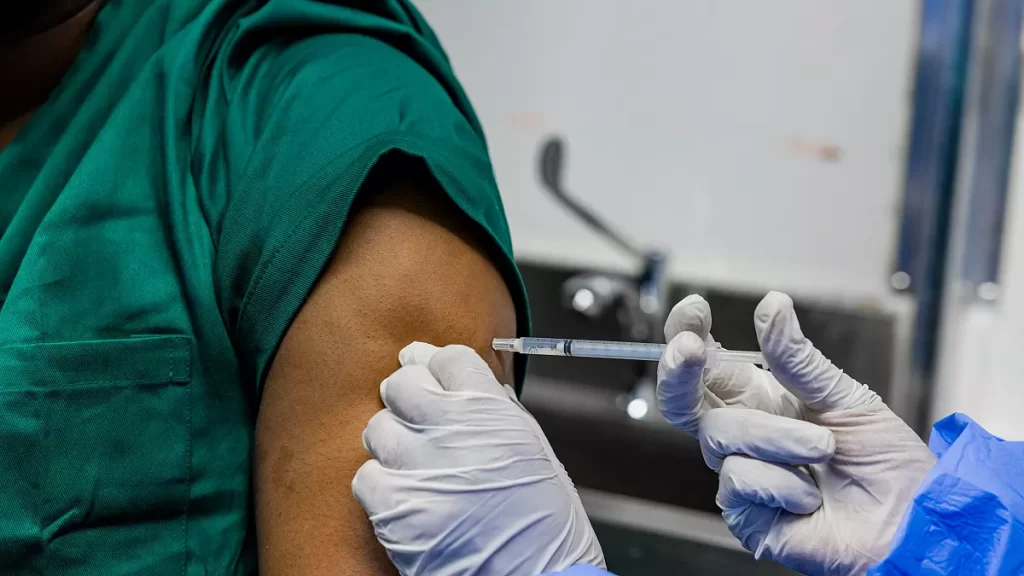Rwanda Marburg Outbreak: Health Minister says situation is under control as vaccines underway
3 min read

On September 27, Rwanda officially declared an outbreak of Marburg virus disease, prompting immediate action from health authorities. During a recent briefing with diplomats and development partners, Health Minister Nsanzimana sought to reassure the public that the situation is under control and outlined the vaccination strategies being implemented to combat the disease.
Minister Nsanzimana emphasized the country’s preparedness in addressing the outbreak. “We are closely monitoring the situation and taking all necessary precautions to ensure public safety,” he stated, highlighting the government’s proactive measures. One of the most crucial steps taken has been the introduction of a vaccination program aimed at protecting healthcare professionals and those who have come into contact with confirmed cases.
Rwanda recently received 700 doses of a vaccine currently in the trial phase. These doses have been prioritized for health workers and individuals who may be at risk of exposure. Augustin Sendegeya, the Chief Medical Officer at King Faisal Hospital, expressed optimism about the vaccine, stating, “We were informed that the vaccines were available, and we saw this as a significant opportunity to boost our immune system.”
Although the vaccine is still undergoing clinical trials, Sendegeya is confident in its safety and potential effectiveness. He believes it could play a vital role in protecting those at risk, especially given the severity of Marburg virus disease, which can be fatal.
Doctors have reported no major side effects from the vaccine thus far. Blaise Dushimiyimana, a gynecologist at the University Teaching Hospital of Kigali, noted, “I haven’t observed significant reactions. People who received the vaccine yesterday reported minimal symptoms.” This positive feedback contributes to the growing confidence among healthcare providers and the community regarding the vaccine’s safety.
As of now, more than 200 individuals in Rwanda have been vaccinated against the Marburg virus. The government is emphasizing the importance of vaccination as a critical tool in controlling the outbreak and preventing further transmission.
Marburg virus disease is a serious illness that often leads to severe symptoms and high mortality rates. Since the outbreak was announced, Rwanda has reported 13 deaths attributed to the disease, underlining the urgency of the situation. The government is working diligently to contain the outbreak and prevent further loss of life.
In addition to vaccination efforts, the Rwandan health authorities are implementing strict surveillance measures. This includes tracking and monitoring contacts of confirmed cases to quickly identify any potential new infections. Enhanced communication strategies are also being utilized to inform the public about the disease, its symptoms, and the importance of seeking medical attention if they experience any related symptoms.
The World Health Organization (WHO) is closely collaborating with the Rwandan government to provide technical assistance and guidance throughout the outbreak. The organization emphasizes the need for a robust response, including efficient testing, contact tracing, and vaccination strategies to effectively manage the situation.
As the country navigates this outbreak, the Rwandan government is committed to ensuring that public health remains the top priority. The Health Minister reiterated the importance of community engagement and cooperation in combating the disease. “We urge everyone to stay informed, adhere to health guidelines, and report any suspicious symptoms to healthcare providers,” he stated.
The situation remains dynamic, and health officials are prepared to adapt their strategies as needed. They continue to monitor the outbreak closely and are ready to implement additional measures if necessary.
In conclusion, Rwanda is taking significant steps to manage the Marburg virus outbreak. With a focus on vaccination and public health education, the government aims to control the situation and prevent further transmission of the virus. While the threat of Marburg remains serious, the proactive measures being put in place provide hope for the community and a path forward in addressing this public health challenge.